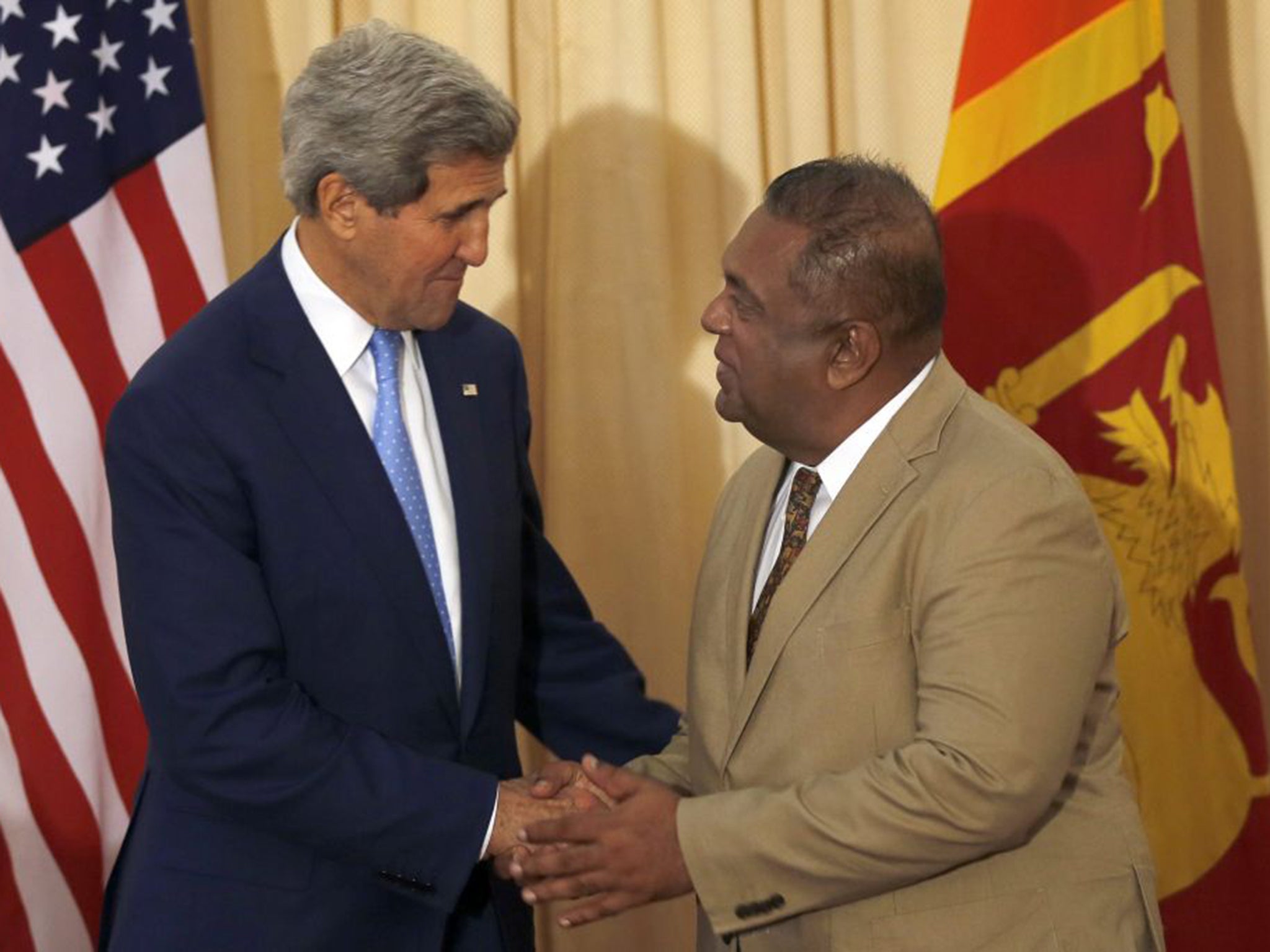US promises closer ties with Sri Lanka amid push for democratic reform
Encouraged by the new atmosphere, the United States helped in postponing the publication of a UN inquiry into possible war crimes in the country

The US Secretary of State, John Kerry, has championed the new Sri Lankan government’s push for democratic reform and promised closer ties with the strategically located Indian Ocean nation. “In this journey to restore your democracy, the American people stand with you,” Mr Kerry said yesterday, during the first visit to the island in a decade by a holder of the top US foreign affairs post.
Mr Kerry met President Maithripala Sirisena, his Prime Minister, Ranil Wickremesinghe, and the Foreign Minister, Mangala Samaraweera. Today, he plans to see leaders from the Tamil minority.
Sri Lanka’s government is determined to bring to a close years of international isolation linked to the country’s long civil war – ended brutally by government forces in 2009. Mr Kerry was greeted by musicians playing horns and drums, and dancers in silver breastplates.
He said the US wanted to “broaden and deepen” the partnership between the two nations, promising US technical assistance to Colombo on a range of matters, including anti-corruption efforts and the return of stolen assets.
Mr Samaraweera said Mr Kerry’s visit “signifies our little island nation’s return to the centre stage of international affairs”. The minister said Sri Lanka would become a “full-fledged parliamentary democracy” and an “investor’s paradise”.
The last American Secretary of State to come to Sri Lanka was Colin Powell, in early 2005. That was before fighting intensified between government troops and the Tamil Tiger rebels, who wanted to create an independent state. The military crushed the rebels in 2009 in an offensive that killed tens of thousands and left the two sides trading accusations of war crimes.
Mr Sirisena won a close election in January after pledging to overhaul a system widely seen as autocratic and suffocating for minorities. Recently, parliament endorsed his proposals to clip the powers of the president, which his predecessor, Mahinda Rajapaksa, had expanded as he tightened his grip after the civil war.
Encouraged by the new atmosphere, the United States helped in postponing the publication of a UN inquiry into possible war crimes. But some human rights campaigners believe the US is congratulating Mr Sirisena too soon. AP
Subscribe to Independent Premium to bookmark this article
Want to bookmark your favourite articles and stories to read or reference later? Start your Independent Premium subscription today.

Join our commenting forum
Join thought-provoking conversations, follow other Independent readers and see their replies